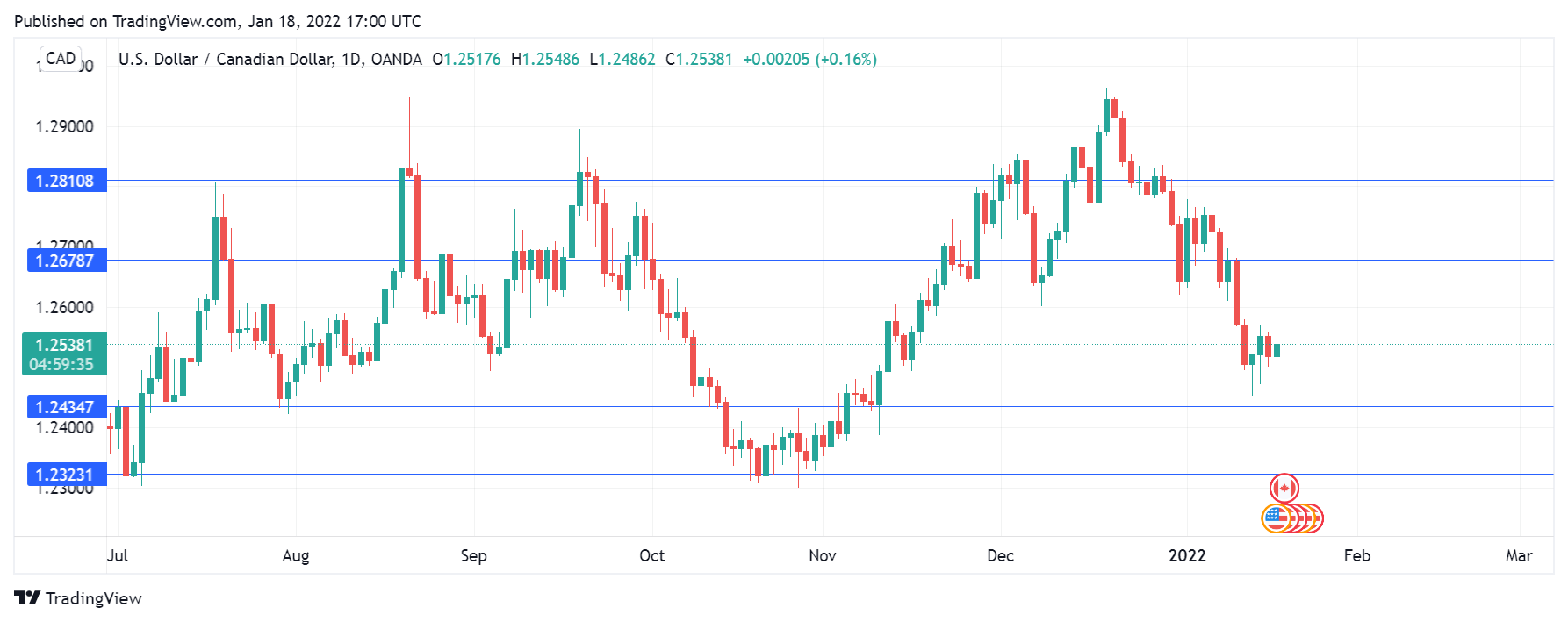Who is Kevin Hassett? Wolfe looks at the Trump ally tipped to become Fed Chair.
The Canadian dollar continues to have a quiet week. In the North American session, USD/CAD was trading around 1.2530.
Canada’s Manufacturing sales climbed for a second consecutive month in November, with a gain of 2.6% that was reflected by higher sales across the sector. This was shy of the consensus of 3.1% and below the October reading of 4.6%. Supply chain issues continue to hamper manufacturing production, and recent floods in British Columbia have worsened the situation.
Inflation in Canada is running at a 4.7% clip, well above the BoC’s inflation target of 2%. There is growing pressure on the Bank of Canada to raise interest rates when it meets next week. Most of the major banks are predicting that the bank will press that rate trigger at the meeting.
The BoC released surveys on Monday that noted that both businesses and consumers expected inflation to remain above the bank’s 2% target for the rest of 2022. Inflation expectations are carefully monitored because concerns that inflation will rise can translate into higher inflation.
US yields rise to 2-year highs
The US dollar received a boost as US bonds climbed on Tuesday. US 10-year yields pushed above the 1.80% and touched a 2-year high. The 2-year yield also touched a 2-year high when it rose above 1% earlier in the day. The upswing was a reflection of market concern that the Fed will be more aggressive in its tightening.
FOMC member Patrick Harker said last week that the Fed could raise rates three or four times this year and the CEO of JP Morgan, Jamie Dimon, suggested that we could see six or seven rate hikes in 2022 due to surging inflation.
The Fed is now in a no-comment “blackout” period ahead of next week’s policy meeting, so it will be interesting to see if yields continue to move towards the psychologically important 2% level as we get closer to the meeting.

USD/CAD Technical
- USD/CAD is testing support at 1.2513. Below, there is support at 1.2396
- There is resistance at 1.2762 and 1.2879
